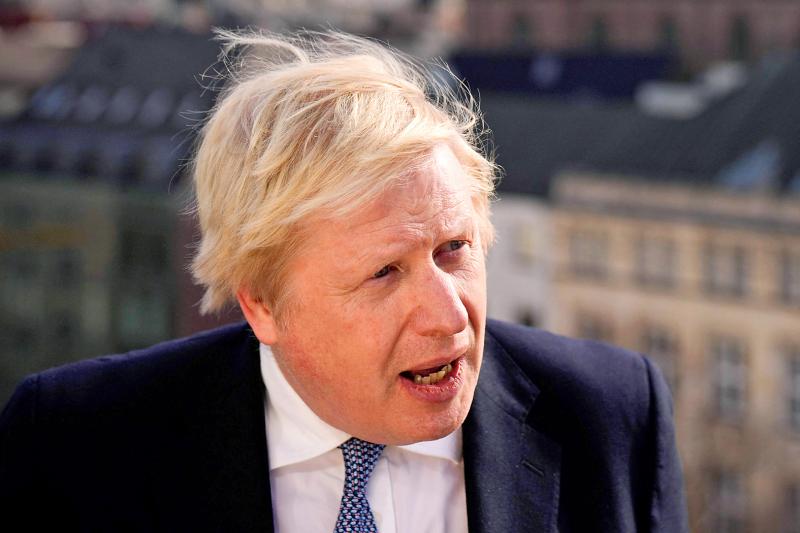British Prime Minister Boris Johnson on Saturday said that if Western nations failed to fulfill their promises to support Ukraine’s independence, it would have damaging consequences worldwide, including for Taiwan.
Russian troops are massed near Ukraine’s borders, and Russian President Vladimir Putin has overseen military exercises by strategic nuclear missile forces, but Russia rejects Western concerns that it is poised to invade.












